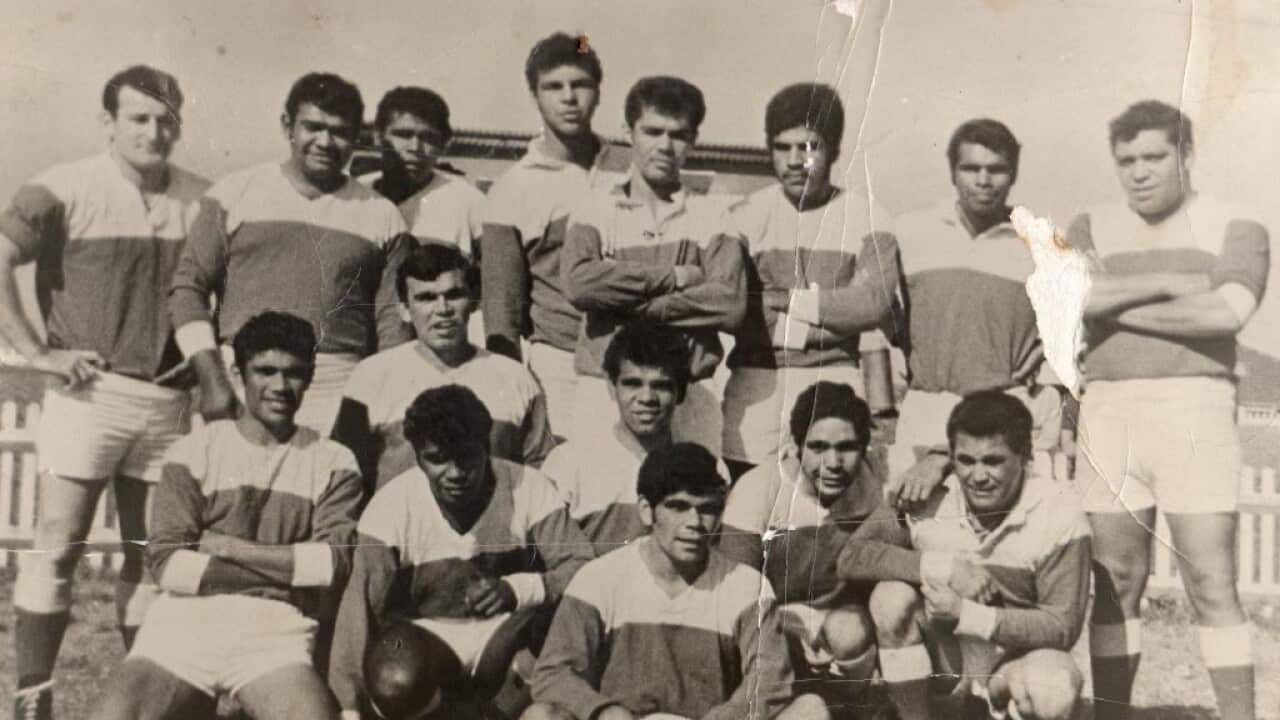Gomeroi woman Sara Hamilton was born and raised in Waterloo/Redfern.
Some of her greatest memories growing up are watching her dad, Wally Hamilton, be part of the Redfern All Blacks.
Sara looks back on these moments with fondness, not only because she would hear stories about how her dad carved up on the footy field, but because the club made her feel like she belonged.
The All Blacks started in 1944, at a time when assimilation policies governed the lives of Blackfellas and institutionalised racism and discrimination were rampant.

Sara's dad Wally Hamilton played from 1961 to 1980. Credit: Stuart Miller
"It was an avenue for our community to not only play sport, but I think it was also what Uncle Shane Phillips described - it was a movement."
It became more than just a football club. It became a community, an expression of identity that defied assimilation and ultimately, a political statement.
"The club is an example of Aboriginal self-determination," Sara said.
It is part of our identity as a community in Redfern but it's also like an extended family.
"It's part of our culture."

The club is so cherished by the local community that they are even featured in Redfern's legendary 40,000 years mural opposite the train station.
A legacy of culture
That culture inspired Sara to follow in the footsteps of her father to become a player and lifelong member of the club.
While Redfern has often been negatively depicted in the media, Sara says the reality is very different.
"Our Redfern Aboriginal community is a resilient one, a very proud and strong community, and Redfern is the birthplace of the Aboriginal civil rights movement.
"We had the first Aboriginal medical service, the first legal service ... and now we have one of the oldest rugby league teams, [celebrating] their 80th anniversary," Sara said.
After eighty long years of running the ball up, Redfern All Blacks are still as staunch, loved and respected as ever.
Sara says that it's only fitting that the community come together to celebrate and has organised a gala dinner to commemorate the club's milestone.
"It feels exciting to come together for a positive occasion... to get up and get dressed and go out and celebrate and be happy," Sara said.
"We'll look back at photos and remember those who have gone before us, those who may have passed on and honour their contributions."
Some time has passed since the All Blacks have had a knockout win, which makes Sara all the more keen to celebrate the club and its achievements for the first time in a little while.
"It's important for us to have good things to celebrate as a community and our rugby league team is one of those," she said.












